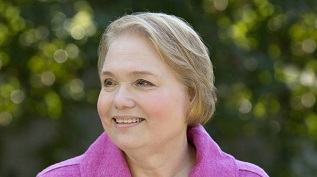Qualities of a Good Trustee

“As I see it, there is no other way that as few people can raise the quality of the whole American society as far and as fast as can trustees and directors of our voluntary institutions, using the strength they now have in the positions they now hold.”
~ Robert K. Greenleaf
Recently, I had a wonderful opportunity to spend the day with family members that make up the founding board of a new family foundation. Even though those joining in the discussion had previous experience with family foundation board service, they wanted to renew their sense of responsibility and opportunity.
It is always a special joy for me when board members pay attention to good governance, especially early in the process. New board members often are thrown into the deep end of the pool as they grapple with grantmaking, legal matters, and financial affairs. The chance to think about the best possible governance for the foundation just doesn’t make it to top priority.
This family knew enough to pay attention to governance early but was open and humble enough to not assume they knew it all. I was invited to come and talk about board service, getting started with a strong sense of values and mission, accommodating family differences, and the best thinking and practice on family foundation trusteeship.
I always start by assuming some of the best thinking is right in the room. So we spent some time talking about the qualities of a good family foundation trustee. We then had an energetic conversation comparing their list to the one developed by the late John Nason in his seminal book, Foundation Trusteeship. I’m a big fan of Nason’s list and its power to inspire rich conversation. Some family foundations have used this list as the basis for developing their own list of qualities and expectations. I know John would have been very proud. For those of you haven’t seen this list, or at least not in a long time, I include it here.
Qualities of the Good Trustee
- Interest in and concern for the foundation and its field or fields of operation. The job is too demanding for anyone who lacks a fair degree of enthusiasm for the task.
- Some understanding of the area of the special purpose foundation and some broad perspective on the problems of society for the general-purpose foundation.
- Objectivity and impartiality are a sine qua non. The board table is no place for special pleading, for temperamental bias, for personal whim. The trustee is judge, not advocate, save with respect to donor’s priorities.
- Special skills. The board will need certain special forms of competence among its members – management, investment experience, familiarity with budgets, and knowledge of the law.
- A capacity for teamwork, for arriving at and accepting group decisions. Irresolvable differences, the tactics of confrontation, ad hominem arguments, and lack of respect for one’s fellow trustees are destructive of intelligent group decisions.
- Willingness to work. This means a willingness to give time and thought to the affairs of the foundation.
- Practical wisdom. It involves the capacity to see the whole picture, to recognize the validity of opposing arguments, to distinguish principle from expediency, and to temper the ideal with what is realistically possible.
- Commitment to the foundation as a whole and not to special interests or constituencies. The trustee’s responsibility is to the foundation.
- Commitment to the idea of philanthropic foundations. No foundation is an island unto itself.
- Moral sensitivity to the act of giving and to the need for giving. Paul Ylvisaker called the latter a “sense of outrage.” Merrimon Cuninggim described the former as “the potential immorality of giving,” the ego satisfaction of the giver, the corrupting influence of the sense of power.
Source: John W. Nason, Foundation Trusteeship: Service in the Public Interest
Next Steps
Consider beginning an upcoming board meeting — or scheduling a special board retreat — with a discussion on the qualities of your foundation’s trustees. What are your expectations for board members? How will you consider your board performance, much the same as you consider your investment and grantmaking performance? If you want a more comprehensive conversation, could a tool like NCFP’s Pursuit of Excellence help you have that conversation?
Getting out to speak with foundation boards is as energizing an activity as I can imagine. While we work through some difficult issues, I come away inspired by the ideas, generosity, and commitment of trustees.
I hope you have plans for a summer break. But, when “school is back in session,” I also hope you’ll give thought to scheduling that conversation with your board about great governance. I know you’ll find there are a lot of things you’re doing to ensure best practice and, likely, you’ll find some things you might add to your repertoire.
Enjoy your summer.
Ginny
